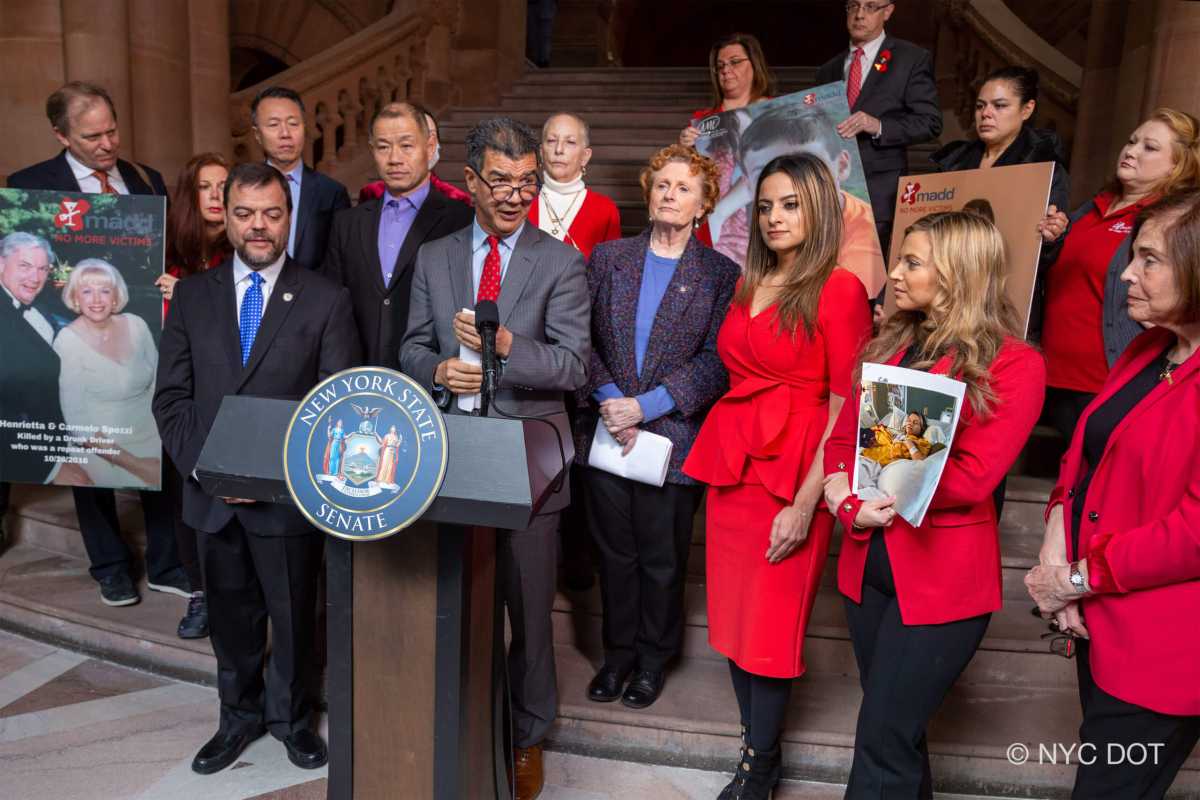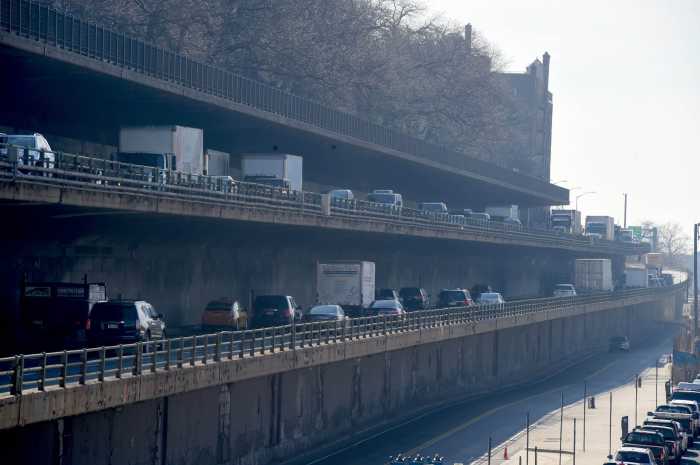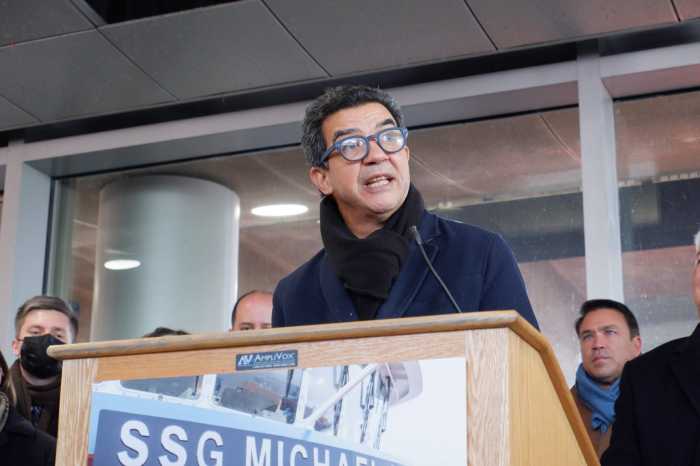The Adams administration has joined a statewide push in Albany to lower the blood-alcohol limit for what’s considered drunk driving.
City Transportation Commissioner Ydanis Rodriguez traveled to Albany on Tuesday to rally in support of a bill in the State Legislature that would lower the blood-alcohol limit from 0.08 to 0.05, which supporters argue could substantially decrease drunk driving deaths in the Empire State.
“Whether they are at 0.06 or 0.12 or 0.20, the consequences can be deadly,” the commissioner said at the rally on the state Capitol’s Million Dollar Staircase.
Drunk driving was responsible for 307 deaths in New York State in 2019, according to the National Highway Traffic Safety Administration. Nearly a third of all fatal crashes in New York that year were the result of drunk driving, according to the agency.
Queens State Senator John Liu, the bill’s primary sponsor, says that lowering the threshold is meant to clarify the spirit of the state’s laws against inebriated driving: people should simply not drink at all if they intend to drive, instead of thinking they can safely consume one or two brewskis before getting behind the wheel.
“The 0.05 BAC simply says, don’t drink and drive,” said Liu. “And if you are found with a blood alcohol concentration of more than 0.05, then you will be charged with DWI.”
Utah became the first state to lower its BAC to 0.05 in 2018, and the move quickly showed promise: in the new standard’s first year, fatal crashes in the Beehive State dropped by nearly 20%, the NHTSA found.
More than 100 countries have lowered their BAC to 0.05, and subsequently saw decreased rates of fatal crashes. The US, too, saw a substantial decline in drunk-driving fatalities as states lowered their BAC limits to 0.08, with the feds threatening to withhold highway funds for states that failed to do so.
































